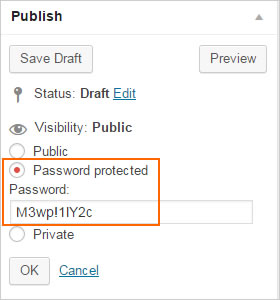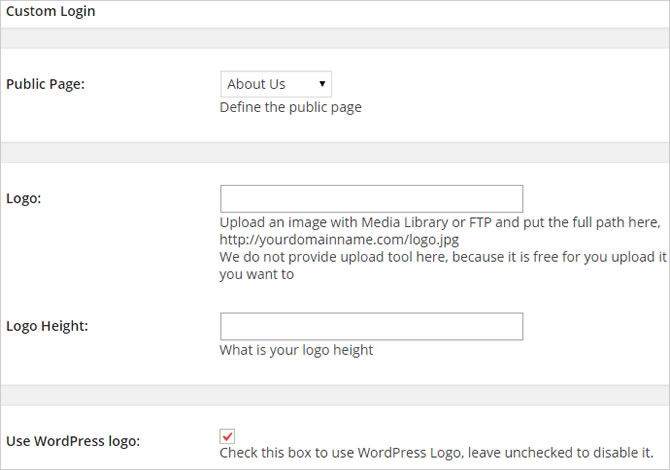
Due to the great flexibility of WordPress, making a WordPress blog private is easy and quick because some excellent plugins can do all the works. But why should people do this? In fact, there are many good reasons. For example, parents want to share the photos of their baby with friends and families but are not willing to get the photos public to the world.
Of course, there are many more situations in which people may consider privatizing the whole blog or a portion of it, just as those discussed below. If you are in one of the circumstances, we have worked out methods for you. Keep reading to find them out.
How to Make Certain Posts Private?
WordPress has built-in features to make blogs private. For posts and pages, there is a setting on the add-new screen allowing you to configure the visibility of the post or page. Clicking on the “Edit” link, you can control who can see the content and how others can access the content on an individual post/page basis.
In the Edit panel there are 3 options: Public, Password Protected and Private. If you choose to password protect the post, a box will appear asking you to enter a password. You can share the password with others, and all readers to the post will be required to use the password to access the content.

After you publish the post, the post will be listed on the frontend of your blog asking visitors to enter a password.

Another choice – Private – makes the post invisible in the frontend and can only be viewed and managed in the backend admin. When you make a post private by using a password or simply putting it in a “privately published” status, you should pay attention that this kind of posts are visible to all users with enough permissions in the dashboard, for example, editors and all other administrators. So if you want to keep something to yourself only, you should not place it on the site.
How to Make the Whole Blog Private?
This can be done by using a plugin. According to our reviews and survey, Private Only is the most award-winning one that is easy-to-use and efficient. In below, we explain how to use the plugin to privatize your blog.
First of all, you should install the plugin on your site. Then, locate Settings > Private Only Custom Login to configure the plugin and to make a change to your site. The setting page includes several settings you can utilize, including selecting a public page, uploading a custom logo for the login page, giving a custom login message, and removing the texts and links on the page.

Using the plugin redirects all visitors to the login page of your site, so that only the registered users with right permissions can access the site. If you define a public page, there will be a link to the page. In addition, when you are using this plugin, people cannot subscribe to your blog with the existing RSS feed.

Stop Search Engines from Indexing the Blog
When you enter the settings page of Private Only, the plugin offers a prompt that reminds you to make your blog invisible in search engines. If you want to make your site completely private and do not want it to appear in search engine results, then you need to go to Settings > Reading, and select the checkbox for discouraging search engines to index your site.

When Should You Consider Making Your Blog Private?
We have discussed how to privatize a blog, and the next answer is to the question “When”. In our option, you should have a consideration about privatizing if you are in one of the following cases.
- Running a blog for personal affairs. You may keep a blog to share the photos of your family, record the story of family members, write diaries, or share some other private things. Then you will want to make the site visible to a small group of people only.
- Running a site for online courses. If you own a WordPress site for the purpose of offering training courses, you may allow registered users (or those having paid) to access certain courses.
- Managing projects for companies or organizations. WordPress can be used to build a website for project management. This kind of usage does not allow unrelated people to gain access.
Besides those cases mentioned above, you may also consider the deed in some other situations, such as owning a staging site, carrying out a marketing strategy to gather registered users, and having a website which is still under construction.
Choose the Ideal WordPress Host
A good WordPress host helps you, and saves you out of troubles. There are thousands of WordPress hosting providers, and below are the ones we trust most.
















